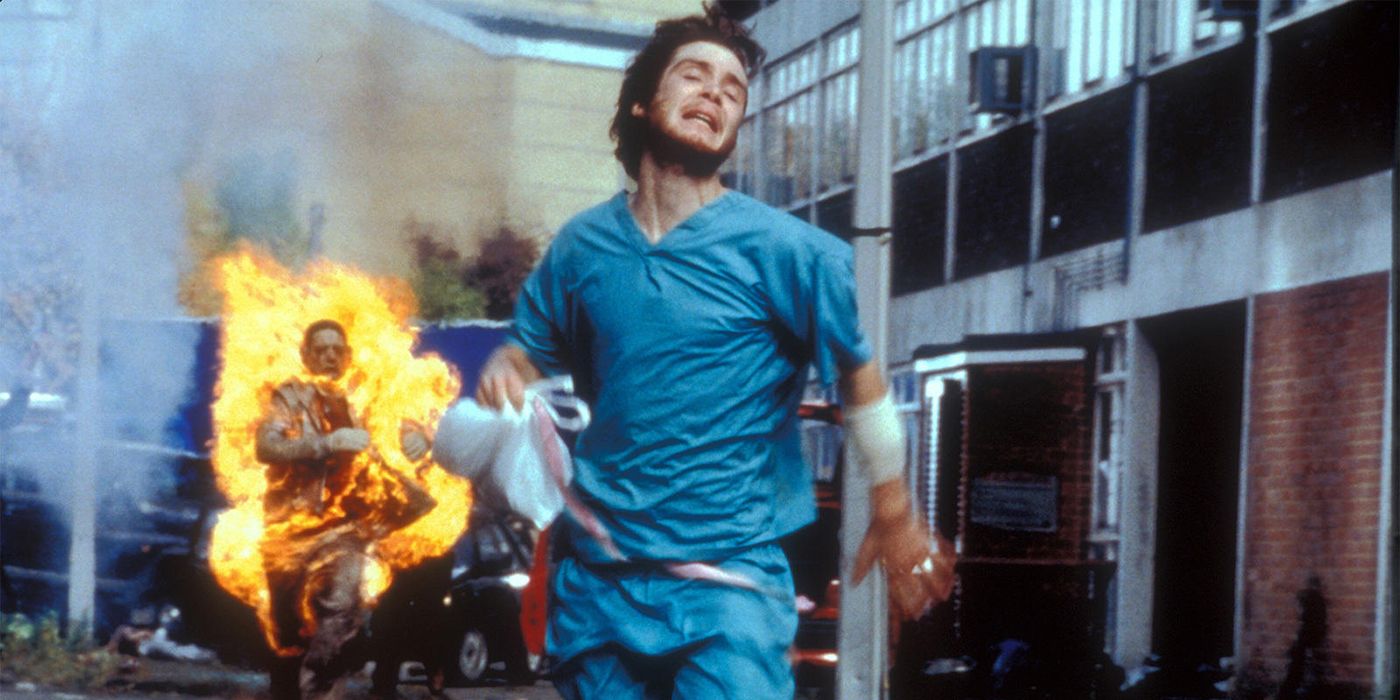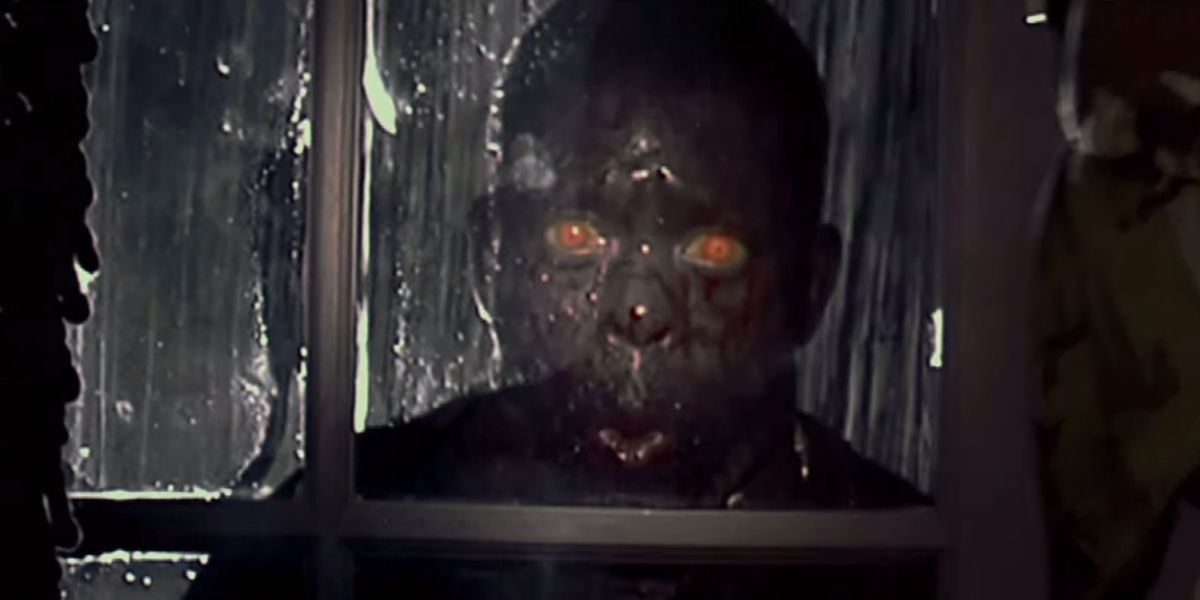There's always been a debate about whether or not Danny Boyle's 28 Days Later is a zombie film, but the answer is somehow both yes and no. By the early 2000s, the zombie sub-genre wasn't exactly doing great. Following director George Romero's 1968 classic Night of the Living Dead, the 1970s and 1980s had been full of entertaining zombie movies, including Romero's own sequels Dawn of the Dead and Day of the Dead. Italian directors like Lucio Fulci also added their own international flair to the sub-genre.
Zombie movies saw much less attention in the 1990s, a trend that looked to continue into the 2000s. It was a sad time for lovers of the flesh-eating undead, outside of the few gems that emerged from the indie horror scene. Thankfully, one movie would arrive in 2003 to get the zombie sub-genre back on track. The weird thing was, it wasn't really a zombie movie, depending on who one asked.
Directed by Danny Boyle, 28 Days Later presented a post-apocalyptic London, devastated by swarms of single-minded creatures looking to visit death on anyone they encountered. A critical and commercial smash, 28 Days Later announced the triumphant return of the zombie film to theaters. Well, kind of.
Why 28 Days Later Is (And Isn't) a Zombie Film
On the surface, 28 Days Later has all the hallmarks of a post-apocalyptic zombie movie. Most of the human population has been wiped out, and is now forced to be vigilant at all times to survive. Hordes of savage creatures roam the landscape, eager to kill anyone normal. The military, the government, and other figures of authority probably can't be trusted. Once exposed to the contagion, there's no hope of survival. In many ways, the remaining humans are even more dangerous than the enemy. In all those ways, 28 Days Later is an excellent example of zombie cinema done right.
The problem is that 28 Days Later's "infected" aren't zombies. In fact, they're technically still alive, and being dead is kind of a requirement for zombies, The rage virus that's infected most of the population causes the desire to commit horrifically violent acts, and gives the afflicted a somewhat zombie-like appearance, but its victims are most definitely not zombies. So, all things considered, 28 Days Later accomplishes the odd feat of being a classic zombie movie that actually isn't one. Whatever one wants to label it as, 28 Days Later definitely did mark a resurgence for zombies, directly leading to the actual undead in 2004's Dawn of the Dead remake, which in turn led George Romero's Land of the Dead to see release in 2005. Zombies or not, the sub-genre owes Danny Boyle a hat tip.


